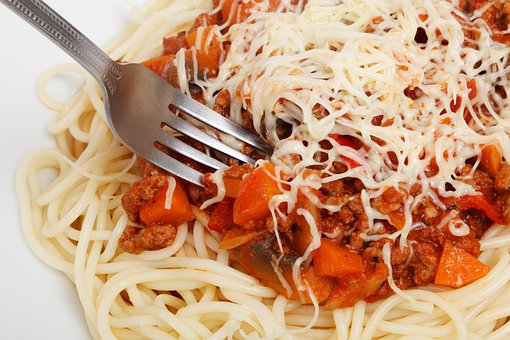Spaghetti is a popular type of pasta made from wheat flour and water. It is a staple food in many cultures and is known for its versatility and affordability. While it is often associated with Italian cuisine, spaghetti is enjoyed in many countries around the world.
But what is the nutritional value of spaghetti and is it healthy for you?
First, let’s look at the nutritional content of spaghetti. One serving of spaghetti (100 grams) contains approximately:
Energy: 158 calories
Protein: 6 grams
Fat: 1 gram
Carbohydrates: 31 grams
Fiber: 2 grams
Spaghetti is a good source of complex carbohydrates, which are an important source of energy for the body. It is also a good source of protein, which is essential for the growth, repair, and maintenance of tissues in the body.
Spaghetti is also low in fat, with just 1 gram per serving. However, it is important to note that the nutritional value of spaghetti can vary depending on how it is prepared and served. For example, adding a sauce made with meat or cheese will increase the fat and calorie content of the dish.
In terms of micronutrients, spaghetti is a good source of B vitamins, including thiamin, niacin, and folic acid. It is also a good source of minerals, including iron and manganese.
Now let’s consider whether spaghetti is healthy for you. In general, spaghetti can be a part of a healthy diet as long as it is consumed in moderation and prepared in a healthy way. Here are a few tips for making spaghetti a healthy choice:
Choose whole wheat spaghetti: Whole wheat spaghetti is made from whole wheat flour, which is more nutritious than refined flour. It is a good source of fiber and has a lower glycemic index, which means it may help to regulate blood sugar levels.
Limit added sugars and saturated fat: If you are using a sauce or seasoning for your spaghetti, choose one that is low in added sugars and saturated fat. You can also consider making your own sauce at home using fresh, whole ingredients.
Add vegetables: Spaghetti is a great canvas for adding vegetables. You can add sautéed or roasted vegetables to your spaghetti for added nutrients and flavor.
Portion control: As with any food, it is important to be mindful of portion sizes when consuming spaghetti. A serving of spaghetti is typically 1-2 cups, depending on the type of pasta and the recipe.
In conclusion, spaghetti can be a nutritious and delicious part of a healthy diet when consumed in moderation and prepared in a healthy way. By choosing whole wheat spaghetti, limiting added sugars and saturated fat, adding vegetables, and being mindful of portion sizes, you can enjoy spaghetti as a tasty and nutritious meal.

 Home
Home Health
Health Diet & Nutrition
Diet & Nutrition Living Well
Living Well More
More












